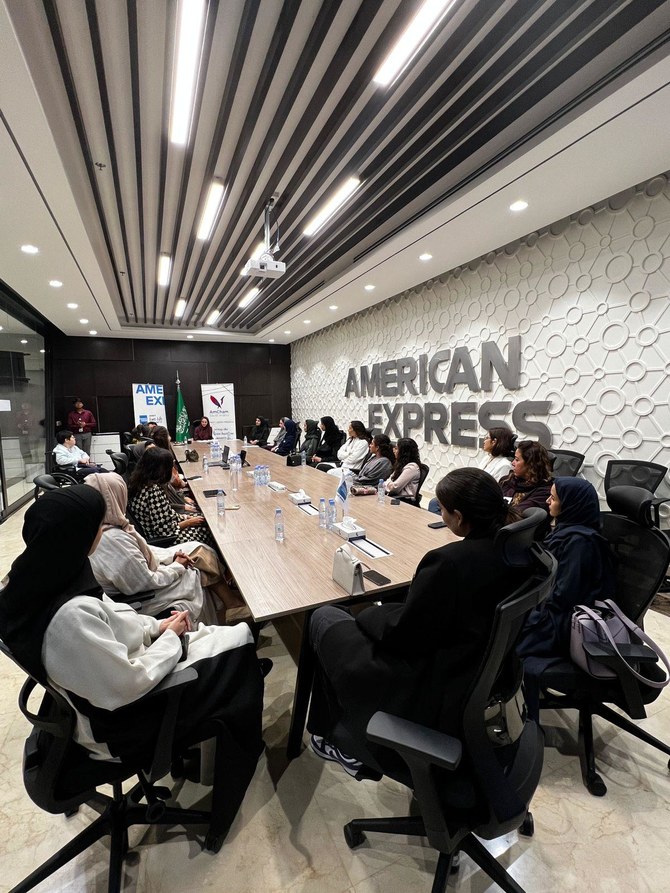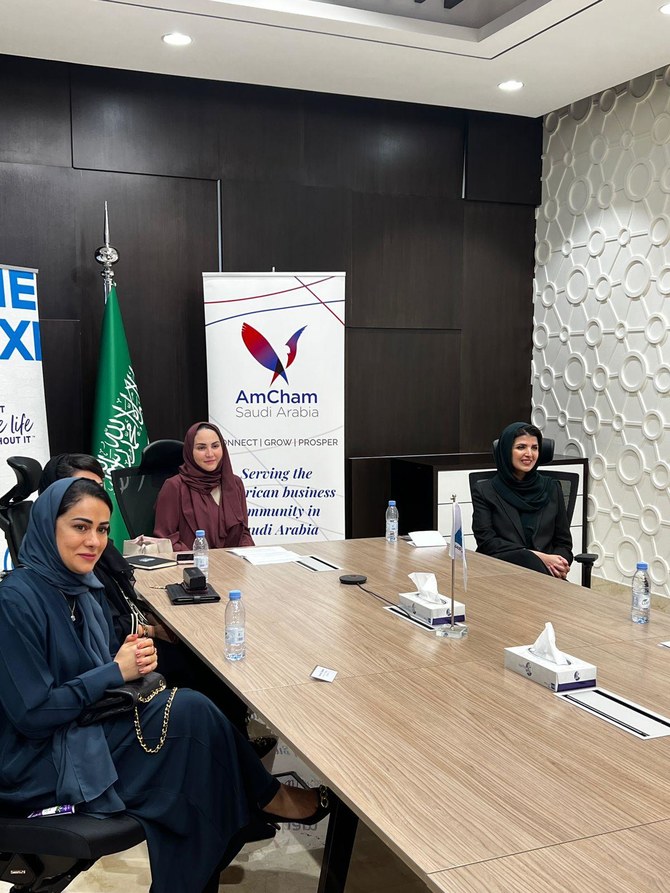RIYADH: While significant progress has been made, more women are needed for leadership positions in Saudi Arabia’s healthcare sector, according to several experts at a workshop held here on the state of the industry.
Fatimah Alhamlan, a consultant and women’s health advocate at King Faisal Specialist Hospital & Research Centre, and the other participants, said women face several challenges in their move toward executive roles.
The workshop was hosted by the Atlantic Council’s empowerME initiative on Oct. 18 at American Express in Riyadh, and moderated by Arab News’ Acting Deputy Editor-in-Chief Noor Osama Nugali.
Based in Washington D.C., the Atlantic Council is a nonpartisan organization that promotes constructive leadership and engagement in international affairs.
Alhamlan said Saudi Arabia’s astronaut and biomedical researcher Rayyanah Barnawi was a prime example of a woman who was successful through patience and determination.
“She (Barnawi) used to be a researcher in King Faisal Specialist Hospital. She used to work in a hospital in a lab, do an experiment, and she ended up in space. The space is the limit.”
“If they (women) have the bright mind, they can adapt, they can learn and they can achieve whatever they want.”
Samar Nassar, managing director for healthcare services and technologies at Saudi Arabia’s Ministry of Investment, said that women are dominating the healthcare and education sectors. “But if you look at executive leadership positions, I mean, since I started my career 20 years ago, it’s been 20 percent across Fortune 500 companies.”
Naseem Almulla, customer excellence director at the Council of Health Insurance, said that compared to the past, greater emphasis has been placed on career-pathing for Saudi Arabia’s women in the sector.
“With regard to what’s coming next, I think now we have more of a structure and direction for women, so in the past it had to be based on proving yourself as a personal effort and having good networks. Now we have some kind of system in place, we have percentages to be filled and KPIs (Key Performance Indicators) to be met.”
“I would still advise the young generation to be patient. There is nothing like building your confidence. This is your treasure.”
The participants also discussed the importance of public mental for a healthy society, with Nassar saying that incentives would soon be available to help build this part of the healthcare sector.
“We are designing financial and non-financial incentives to attract investments to help bridge the gap in the value chain, which is around creating mental health facilities, clinics and campuses.”
Now we have some kind of system in place, we have percentages to be filled and KPIs (Key Performance Indicators) to be met.”
“I would still advise the young generation to be patient. There is nothing like building your confidence. This is your treasure.”
The participants also discussed the importance of public mental for a healthy society, with Nassar saying that incentives would soon be available to help build this part of the healthcare sector.
“We are designing financial and non-financial incentives to attract investments to help bridge the gap in the value chain, which is around creating mental health facilities, clinics and campuses.”





























